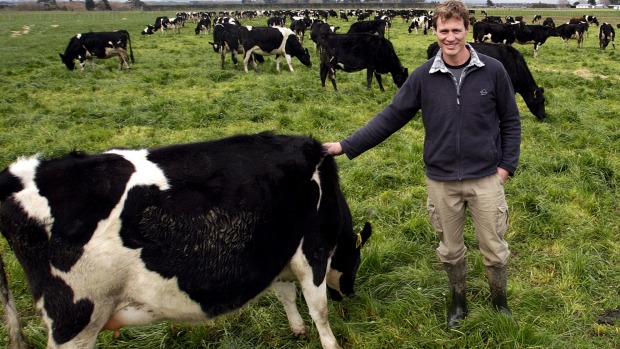
Source: Stuff
Dairy farmers have tightened their belts as the impact of the lower milk payout hits.
Manawatu, Whanganui and Tararua economies have lost $42 million as a result of Fonterra’s latest farmgate price plummeting from $4.60 to $4.15 a kilogram of milksolids for this season.
The lower payout has put a dampener on an already subdued dairy industry.
Blair Worsley from Gary Worsley Motorcycles in Feilding said dairy farmers were bringing in quads bikes for repairs.
“They are not buying new machines, they have no money, but fixing the existing machines.”
He was unsure whether that was cost effective as buying a new machine was sometimes cheaper in the long run.
Worsley said about 70 per cent of the company’s work was maintaining quad bikes and at least five staff worked as mechanics in the workshop.
He said the company was busy selling side-by-side all terrain vehicles and could not get enough. As a result of the additional work the company, which had nine fulltime staff, was thinking about putting more people on.
“About half our clientele are sheep and beef farmers, and half dairy farmers. The sheep and beef people are buying side-by-sides to comply with health and safety regulations”
He said the company had done a deal on side-by-side all terrain vehicles for AgResearch, and was looking at contracts with Fonterra, Landcorp and the Department of Conservation (DoC).
“People want to have seat belts and roll protection. The vehicles we sell have those things and people want to have that under the new health and safety laws.”
Adding more staff was not on the minds of dairy farmers.
The latest announcement of the fall in farm gate milk prices was expected, but unwelcome news.
DairyNZ regional manager James Muwunganirwa said farmers were doing cashflows to try to see what the lower payout would mean for them.
“They look at income and costs, and costs are the only thing they can influence.”
He said farmers were cutting feed costs by getting rid of cows (sending cull cows to meatworks) that were not in-calf, or producing well.
“That will reduce feed demand as things become even tighter.”
Farmers were also concentrating on using pasture, as it was the cheapest feed available, Muwunganirwa said.
“And some people are switching from twice-a-day milking to once-a-day. It allows them to put more condition on cows and get them in good nick before calving.”
Farmers were keeping staff, but they were talking to them to make sure everyone on-farm was on-board and aware of the cost cutting, he said.
Muwunganirwa said farmers were feeling that the industry had more volatility now and were thinking and planning long term.
“Farmers have become more resilient and they think about keeping their business more sustainable now.”
Federated farmers Manawatu/Rangitikei dairy chairman, Mat Hocken said many farmers had made decisions earlier when the payout was $4.60/kg.
“Even that was hard, now it is lower price. In the meantime, dairy farmers just have to be patient and keep going.
“But we had a hard start to this season, after a wet winter and spring. It took a long time for the soil temperatures to come up and for spring growth. I think the milk production in this region is down about 10 per cent this season.”
Hocken said farmers were now looking ahead to next season’s production and they were thinking about what next season’s payout might be.
“I think farmers are optimistic about the future. New Zealand dairying is a lower cost producer. And long term, the dairy price should go up internationally. We just have to ride this low price out and keep cool heads.”
He said dairy farmers remained confident with some farmers building new dairy sheds.



